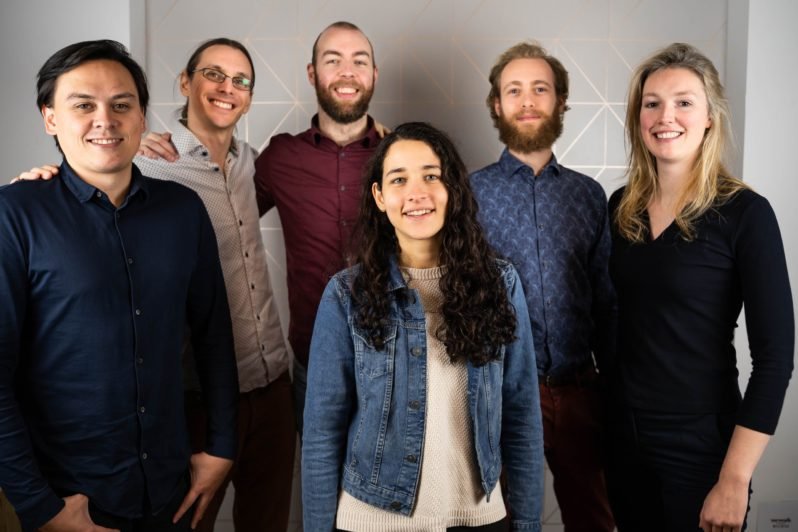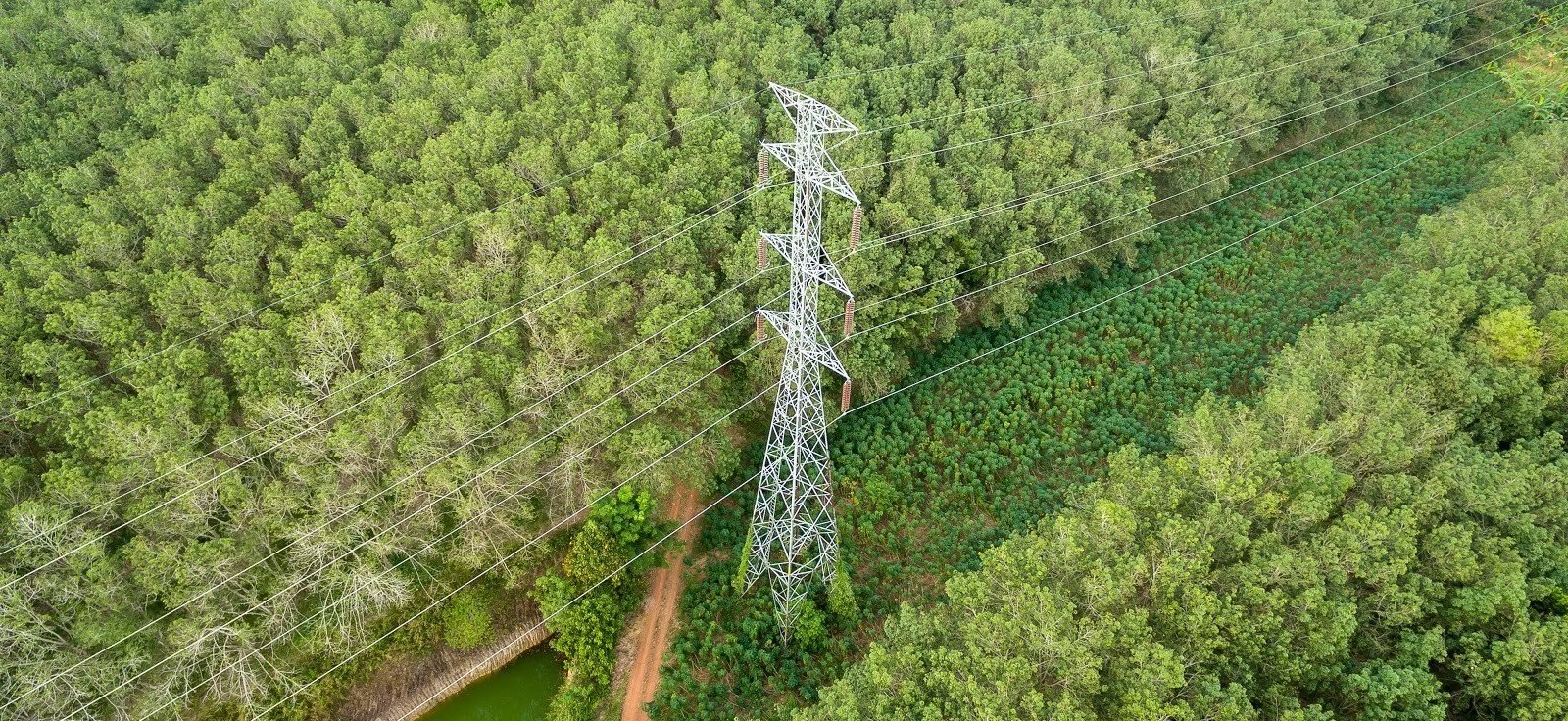Editor’s note: This is a sponsored article, which means it’s independently written by our editorial team but financially supported by another organisation, in this case, Techleap. If you would like to learn more about sponsored posts on tech.eu, read this and contact us if you’re interested in partnering with us.
If you find yourself outside in the middle of a clear night, take a look at the sky — what do you see? The stars are beautiful, the moon (if it's there) is bright — but chances are, you'll also see more than one satellite making their way around the planet.
There were more than 2,500 satellites orbiting the Earth as of April 2020, and almost a quarter of those are continuously snapping pictures of the planet's surface for different purposes. The amount of imaging data available today is quite incredible; the challenge is now how to use it not only for business purposes but to help the planet itself.
Overstory, a growing Dutch startup that's recently joined the Techleap Rise programme, is doing just that.
“We take data from different providers, we process it with our machine learning algorithms, then we share the insights, alerts or data layers with our customers,” Indra den Bakker, co-founder of Overstory, told tech.eu.
The company is already monitoring millions of square kilometers of forests all over the world, including Finland, Sweden, Indonesia, Peru, the US. Most of the startup's customers are electric utility companies in Europe and North America that need to monitor their power lines, but the vision behind the company is much bigger.
“We strongly believe that a data-driven approach can help to improve decision making about our natural resources and how we handle them, but also create a more resilient planet,” Den Bakker said.
From the Amazon rainforest to power lines across the world
“It's ironic that we're based in the Netherlands but only one of our customers is located here,” Den Bakker says, laughing.
Co-founded by three Dutch entrepreneurs, the more technically minded Den Bakker and Roelof Pieters, and Anniek Schouten who holds a degree in Business Studies, Overstory actually originates in Portugal where Den Bakker and Schouten lived at the time. Under the name 20tree.ai, the startup was born in 2018 at a machine learning competition where the team looked for a solution to detect deforestation in the Amazon rainforest.
 The team of Overstory in late 2019
The team of Overstory in late 2019
“We did pretty well at the competition,” Den Bakker said. “That's when we started discussing, what else can we do with satellite imagery to look at our planet and specifically forest and trees?”
After a year of bootstrapped experimentation, which involved going through a Techstars acceleration programme in Lisbon and moving back to Amsterdam, the founders decided to focus on working with electric utilities for the time being. With millions of kilometres of power lines that go through forests, it's incredibly important for these companies to watch for potential issues like falling branches damaging the lines or even starting a fire.
Recently, Overstory raised a $1.7 million seed round led by the climate fund Pale Blue Dot, with participation from Powerhouse Ventures, Techstars, and Futuristic VC.
Seeing every tree
Today, Overstory monitors forests in 56 countries for 11 paying customers, mostly through purchasing and analysing commercial satellite imagery that tends to have higher resolution and “refresh rate” than free projects.
“Some of our customers have helicopters that they fly every day — but they don't know where to fly to and what to prioritise; we can show them where to go and when,” Den Bakker said. “What we see now is that it saves a lot of resources for our clients. They save 10% to 20% of their time.”
The satellite images that Overstory is using provide a resolution of 30cm, which means that any details or objects on the ground larger than 30cm×30cm will be captured. For the startup's purposes, it means that it can recognise the species of individual trees, as well as figure out their age and health based on historical data.
Terabytes of satellite images are fed to Overstory's algorithms daily, which make sense of the data and present it for the customers through an online dashboard. In addition to that, the startup offers an API for the clients who prefer to fetch the data into their own monitoring systems.
With a sizable war chest and first paying customers, the startup is in a good position to keep scaling. The founders' vision, however, goes well beyond commercial success.
“Starting as a bootstrapped company, we focused early to find the right customer,” Den Bakker said. “Now we've found the product-market fit with what we're building, and we want to grow rapidly so that we can accelerate our positive impact on the planet.”
From prediction to prevention
The tagline of the Overstory website reads “Vegetation Management for Electric Utilities” — but the company's mission statement is much wider: to monitor all natural resources on Earth in real-time. To get there faster, the startup has joined Techleap's Rise programme that enables companies based in the Netherlands to scale rapidly through coaching and networking.
“There are many benefits for us at this stage,” Den Bakker said about the programme. “It's always interesting to learn from each other and discuss things, speak with experienced founders or peers in our network. It makes a lot of sense for us to share thoughts, ask our peers for feedback, but also talk to experts from the Techleap network.”
Den Bakker explains his vision and plans for Overstory through outlining three phases of resource monitoring.
The first phase, which the startup is currently moving out of, is all about what's happening at the given moment. Essentially, it represents a reactive stance where the organisation sees issues with the forest, like fallen trees or a fire, and takes measures to minimise the damage.
The second phase becomes more predictive. For example, by detecting an early insect outbreak, Overstory could indicate where the risk of branches falling on a powerline is the highest.
The third phase is, in Den Bakker's words, prescriptive monitoring.
“We can use information so that we can fight forest fires, for instance,” he said. “We can change forest composition, maintain the forest differently, and decrease the number and impact of fires. This is the piece that's missing today.”
The plan of the founders of Overstory is to scale the startup to the third phase while staying within the current market niche — and then think of expanding into adjacent verticals.
“The key for that is focus, focus, focus,” Den Bakker said. “We need to not get distracted by other verticals, or by competition — just focus on what we've thought of. Of course things will change, but I think as CEO it's important to make sure we keep our focus sharp and grow as planned.”



Would you like to write the first comment?
Login to post comments